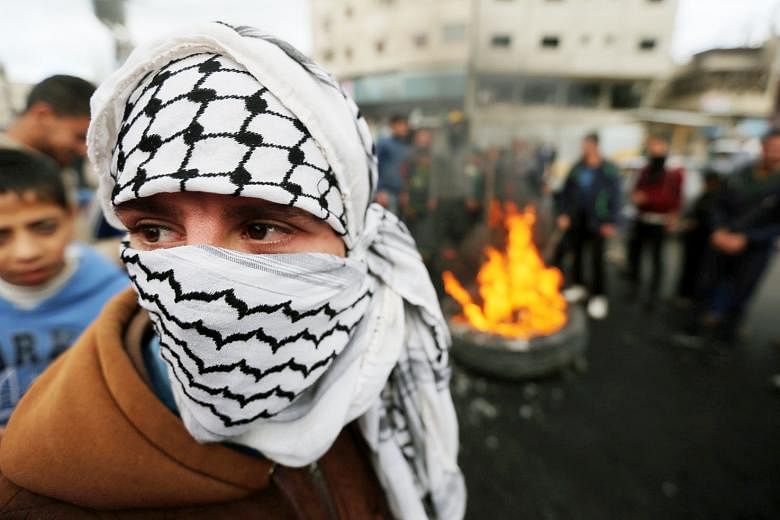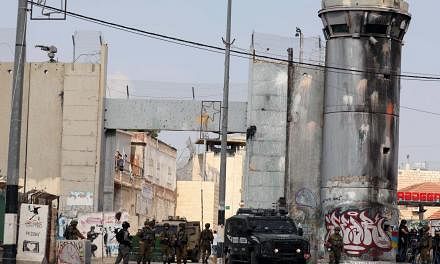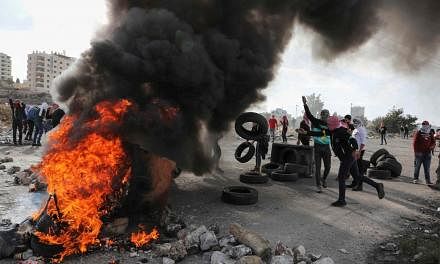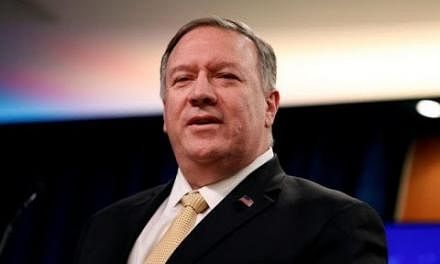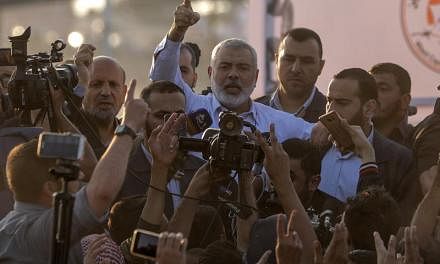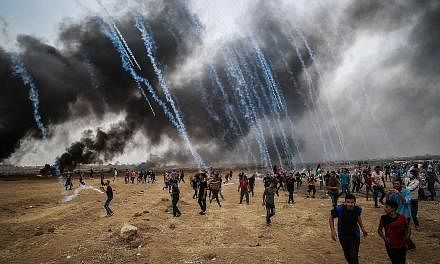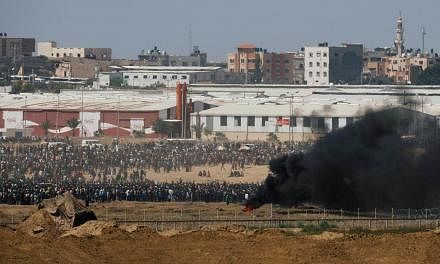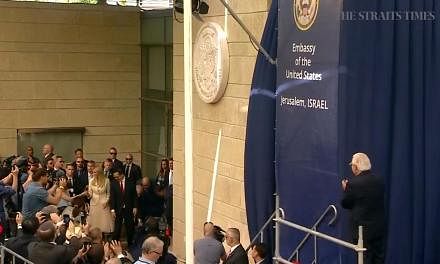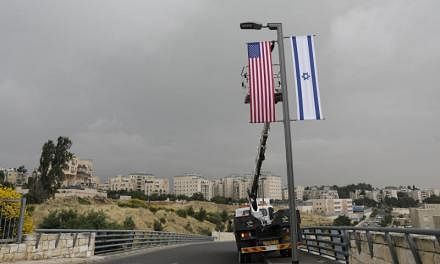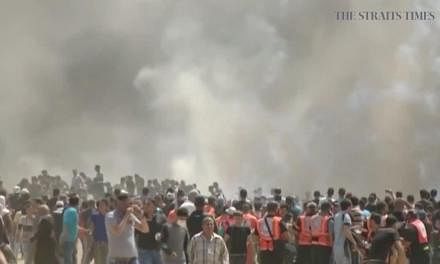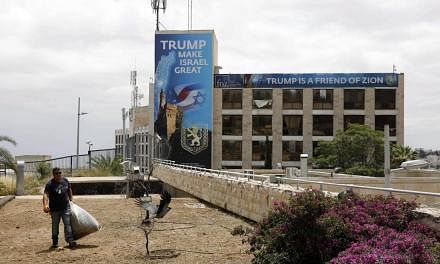President Donald Trump's announcement that the United States recognises Jerusalem as the capital of Israel not only has put in jeopardy Washington's role as an honest broker in peace negotiations but also raises questions about issues beyond the status of the city.
Mr Trump's move has met with widespread disapproval throughout the Middle East, and beyond. The announcement was not a complete surprise, however, as there has been an Act of Congress making provision for moving the US embassy from Tel Aviv to Jerusalem since 1995, when Mr Bill Clinton was president.
The reason successive US presidents signed six-month waivers deferring the decision to move the embassy was over concern that it would prejudge one of the most important, and difficult, of the final status files, which was to reach agreement on the status of the city as a shared capital, negotiated between Israel and the Palestinians. By pre-empting these negotiations, Mr Trump's "deal of the century", based on the 2002 Arab Peace Initiative, with its call for an Israeli withdrawal to the 1967 borders, may become dead on arrival.
Dr Husam Zomlot, Palestine's Washington envoy, described the announcement as a "black day" for the Palestinians and said the US had disqualified itself as an "honest broker" in the peace process. These concerns were also echoed by other Palestinian leaders, including President Mahmoud Abbas and Palestine Liberation Organisation Secretary-General Sa'eb Erekat.
Beyond the usual denunciations by Palestinian leaders, Dr James Zogby, president of the Arab American Institute in Washington, was more optimistic, pointing out that President Trump qualified his statement of recognition by saying that he was not taking a position on the final status issues, such as "the specific boundaries of Israeli sovereignty in Jerusalem" or the resolution of "contested borders", which Mr Trump said was "up to the parties involved". Indeed, it remains to be seen what may become of the US Consulate-General's office in East Jerusalem, and whether that could become an embassy to a Palestinian state one day.
But the omens do not look good. Israeli Prime Minister Benjamin Netanyahu was notably encouraged by the news and seized upon the divisions in the Arab world to call upon other states to move their embassies from Tel Aviv to Jerusalem. This is where the diplomatic battlefield will commence with the Palestinians calling for emergency summits of the Arab League and the Organisation of Islamic Cooperation. Eight countries of the 15-member United Nations Security Council have also called for an emergency meeting in New York to debate Mr Trump's announcement.
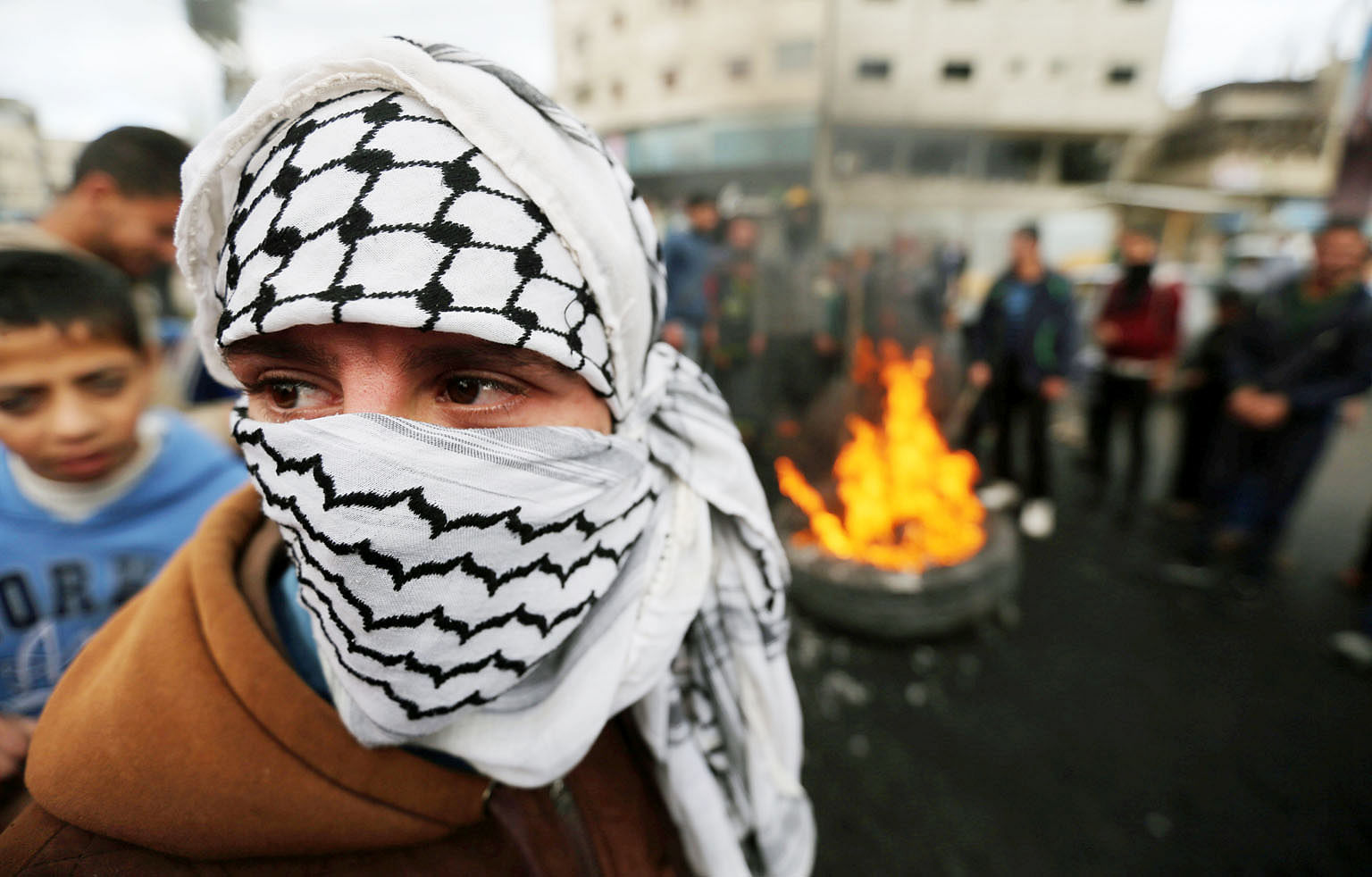
The problem with Mr Trump's statement regarding the borders of Jerusalem is that it is so ambiguous that it could be interpreted to encompass a united sovereign Jerusalem, including the settlement blocs, which he did not mention and which are considered neighbourhoods by Israel, although the international community has described them as illegal. UN Secretary-General Antonio Guterres warned that the legitimate aspirations of both peoples would be achieved only by realising the vision of two states living in peace and security with Jerusalem "as the capital of Israel and Palestine".
Mr Trump's statement not only is a major reversal of US policy but also poses a challenge to the integrity of the post-war liberal world order, with the UN Security Council making it clear just last year that it would "not recognise any changes to the June 4, 1967, lines, including with regard to Jerusalem, other than those agreed by the parties through negotiations". It is often forgotten that, despite the location of Israel's executive, Parliament and legislature in West Jerusalem, no state had recognised the legality of Israel's presence there due to the dispute over the status of the city following the 1948 war, when the UN was trying to establish a UN trusteeship over the city.
Most disturbing, perhaps, was Mr Trump's statement that his decision to recognise Jerusalem as Israel's capital was justified because it was the "recognition of reality".
The difficulty with this approach is that it privileges the actions of powerful, bigger nations that can impose their views on weaker, smaller nations. Israel's annexation of the Golan Heights is also a "reality". But what about legality? The UN Security Council described Israel's annexation of both territories as "null and void".
By privileging reality over legality, the US or other powerful states could also recognise the reality of other contested territories, such as the Crimea, disputed islands in the South China Sea, or Western Sahara. This would not bode well for world peace.
Then there are the Holy Places. True, Mr Trump called on all parties "to maintain the status quo at Jerusalem's holy sites, including the Temple Mount, also known as Haram al-Sharif". But the problem is that the status quo in these places has changed over the last four decades. For example, mainstream rabbinical edicts prohibit Jewish prayer on the Temple Mount for fear of treading on the Holy of Holies. Yet such prayers are becoming increasingly common and are a growing cause of disturbances among worshippers in the Old City.
Mr Trump's announcement is a major blow to King Abdullah of Jordan, home to the world's largest population of Palestinian refugees, and who is the custodian of Jerusalem's Islamic holy shrines. The King had been in Washington recently, lobbying congressional leaders and meeting senior members of the US Armed Forces and the State Department, to little avail. Mr Trump was not listening, or if he was listening, he was more interested in what his conservative, evangelical base had to say. The announcement could undermine the King's credibility.
The announcement is also an embarrassment for the King of Saudi Arabia, who had warned Mr Trump that recognition was "likely to inflame the passions of Muslims around the world due to the great status of Jerusalem and the Al-Aqsa Mosque". While Mr Trump's recognition of Jerusalem is unlikely to have a major impact on US-Saudi relations, which remain strong, it will make it easier for Saudi Arabia's enemies to portray the kingdom as being soft on the national rights of the Palestinian people, especially as there was talk that the announcement was connected to a Saudi peace initiative brokered by Mr Trump's son-in-law, Mr Jared Kushner. Iran's President called the recognition "wrong, illegitimate and provocative". Turkey has even threatened to break diplomatic relations with Israel.
If anything, Mr Trump's recognition of Jerusalem as Israel's "eternal capital" will embolden those Palestinians from within Mr Abbas' Fatah party who have long been urging him to look for support beyond the US. The announcement is unlikely to jeopardise the national unity agreement between Fatah and the Islamist Hamas, however. Rather it will oblige Mr Abbas to take a more assertive stance in defence of Al-Aqsa. Hamas has called for "three days of rage". Let us hope that cool heads will prevail on all sides in the coming days.
- The writer is a senior research fellow with the Middle East Institute, National University of Singapore
